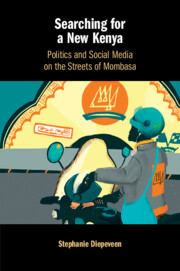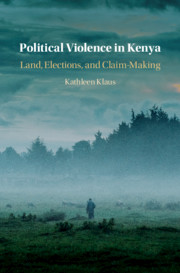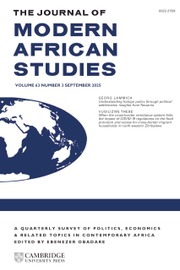Searching for a New Kenya
Searching for a New Kenya analyses public discussion in urban Kenya, focusing on the gatherings of citizens, both in-person and online, where people discuss issues of common concern to shed light on the role public discussion plays in politics and how social media affects political movements. Through rich ethnographic study of politics on the ground and online in Mombasa, Stephanie Diepeveen brings a fresh perspective on the wider challenges and dynamics of negotiating political narratives across protracted historical debates and changing digital media. Based on a critical revision of Hannah Arendt's ideas about action and power, this study explores the different dynamics of public talk in practice. It contributes to wider debates about the place and limitations of the Western canon in relation to the study of politics elsewhere, while also offering a nuanced view of why and how certain terms of debate persist in Kenya, and where the potential for change lies for public talk across changing media.
- Counters views of democracy in Kenya that focus on high level politics and elections by providing a bottom up view of identity-based and materially-driven politics in Kenya
- Analyses public discussion in urban Kenya, focusing on the gatherings of citizens, both in person and online, to shed light on the how public discussion and social media affects political movements
- Of interest to researchers looking at Kenyan politics and communications studies, as well scholars of decolonial studies, political science, international studies and African studies
Reviews & endorsements
'The focus on publics, at a time when scholars are revisiting the concept with fresh lenses, locates this book at the centre of one of the most important debates in African politics. Diepeveen demonstrates how social media and street parliaments in Kenya prompts us to rethink popular politics, across physical and digital spaces in Africa.' Duncan Omanga, Social Science Research Council, Brooklyn
'In Searching for a New Kenya, Diepeveen treats public talk in the streets and on social media along the same continuum. The book provides both a finely grained empirical analysis of the role of public talk in Kenya and a deeply theorised account of the nature of publics in Mombasa informed by Hannah Ahrendt’s work. While digital technology is increasingly dismissed as invasive, extractive and controlling, Diepeveen powerfully demonstrates that the mere presence of publics - whether transformative or ineffectual - matters to people.' Wendy Willems, London School of Economics and Political Science
'Why can apparently open and lively political discussions can end up repeating the same patterns, over and over again - entrenching divisions rather than opening up new intellectual space? In this empirically rich snapshot of spaces of public debate in twenty-first century Mombasa, Stephanie Diepeveen explores this fundamental question, showing that both physical and virtual ‘publics’ are vivid and engaging theatres of argument, yet are multiply constrained - by the expectations of behaviour that structure debate, and by the same economic and social precarity that leads people to talk politics with such energy. In a world in which apparently ever-more open debate has been combined with increasingly bitter divisions, this is an important study of a pressing issue.' Justin Willis, Durham University
'A detailed and informative examination of people’s parliaments in Mombasa, Kenya's chief port and the center of its Muslim population, this book examines the role of street corner discussions of political, economic, and social issues. Recommended.’ R. I. Rotberg, Choice
‘Stephanie Diepeveen uses rich primary sources as she brings conversations and public discussions to life in her book. It is really difficult to highlight any errors in the book in terms of its thematic preoccupation or analysis … Beyond the length of the book, one gets drawn into the narratives of the author far more than one envisioned which is a great strength that compliments the text.’ Odunayo Adeojo, African Studies Quarterly
Product details
June 2024Paperback
9781108826402
284 pages
229 × 152 × 15 mm
0.417kg
Available
Table of Contents
- Part I. Re-thinking Publics from Kenya:
- 1. Introduction
- 2. The history of publics in Mombasa: people, media and the state
- Part II. Characterising Publics:
- 3. Publics in the streets: Mombasa's street parliaments
- 4. Publics in civil society and online: Mombasa's youth parliaments
- Part III. Situating Publics in Time and Space:
- 5. Our turn to starve: material insecurity, idleness and publics
- 6. Publics and the contested state of land in Kenya
- 7. The obfuscation of spatial constraints on Facebook
- Part IV. The Power of Publics:
- 8. Popular politics and publics during the 2013 general elections
- 9. In the presence of fear: violence and publics in Kenya
- 10. The individual spectator and the role of imagination in publics
- 11. Conclusion.








